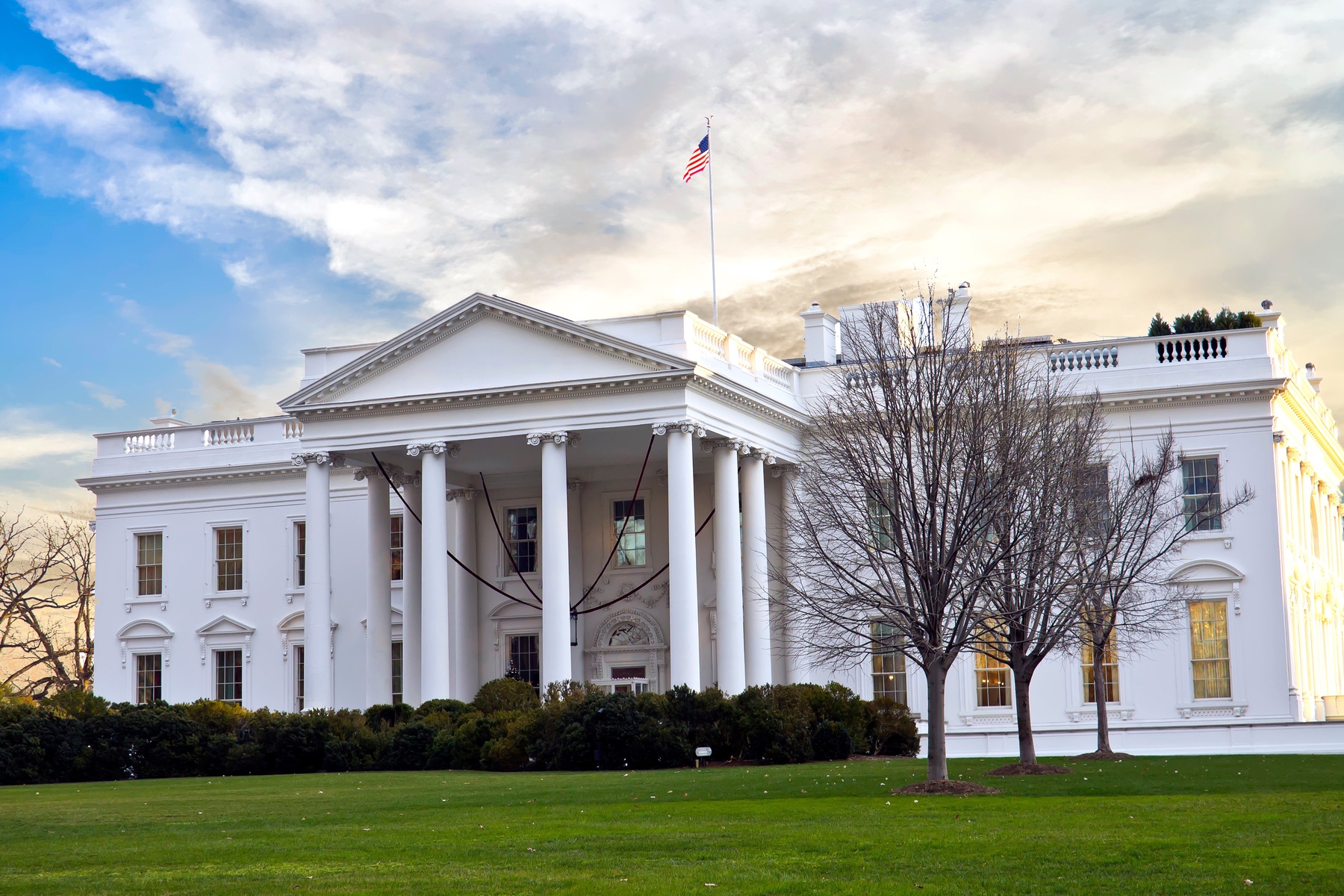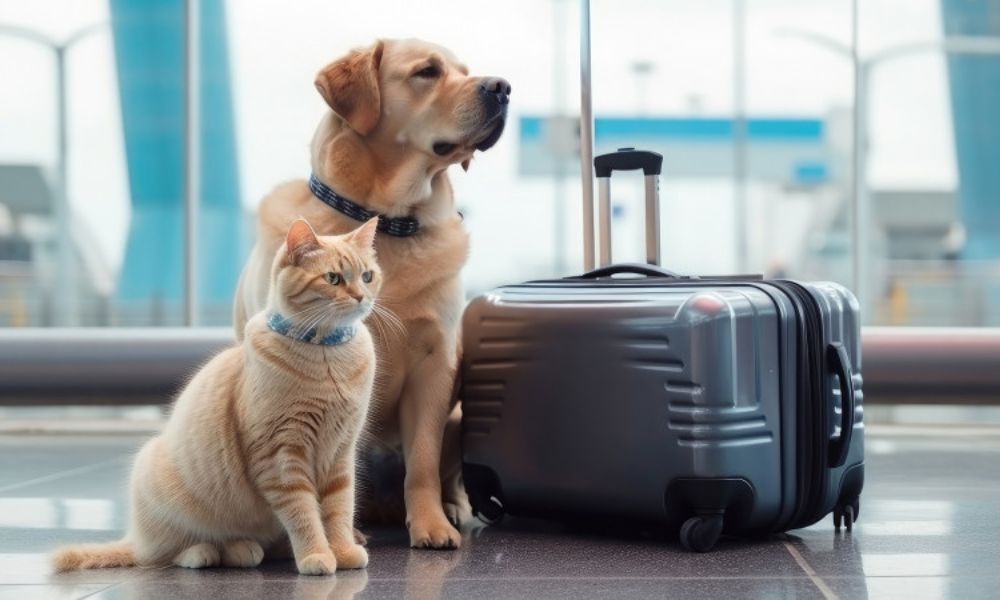
Airline CEOs Went to the White House. Here’s What They Want
The CEOs of American Airlines and United Airlines attended a White House roundtable with Vice President J.D. Vance Thursday afternoon to discuss the impact of the ongoing government shutdown. The airline industry, a critical artery in the American economy, is increasingly feeling the pressure of the political impasse in Washington. This meeting underscores the growing concern within the aviation sector that a prolonged shutdown could inflict significant and lasting damage on its operations, workforce, and the broader national economy.
Delta CEO Ed Bastian was not at the meeting. In a statement, the carrier said, "Delta Air Lines implores Congress to immediately pass a clean continuing resolution to reopen the government so that our air traffic controllers, TSA and CBP officers charged with the safety and efficiency of our national airspace can collect the paychecks they deserve." Delta’s absence from the meeting, while notable, doesn’t diminish the unified message the industry is sending to Washington. Bastian’s statement highlights the immediate and practical concerns of airline operations: ensuring the safety and efficiency of air travel by keeping critical government employees on the job and paid.
Vice President Vance held a closed-door meeting with American CEO Robert Isom, United CEO Scott Kirby, Air Line Pilots Association president Jason Ambrosi, and Airlines for America CEO Chris Sununu. After the meeting, the industry leaders pressed Congress to pass a short-term spending bill to reopen the government. The urgency displayed by these industry titans reflects the severe implications of the shutdown, which extend far beyond mere inconvenience for travelers. It jeopardizes the intricate network of air travel, impacting everything from flight schedules and airport security to the overall economic health of the nation.
The airline industry’s appeal for a swift resolution to the government shutdown is rooted in a complex web of operational dependencies on federal agencies. The Federal Aviation Administration (FAA), responsible for air traffic control and safety regulations, is directly affected by the shutdown, with many of its employees furloughed or working without pay. The Transportation Security Administration (TSA), crucial for passenger and baggage screening, also faces staffing shortages and potential disruptions. Similarly, Customs and Border Protection (CBP), responsible for processing international travelers and cargo, is strained, leading to longer wait times and potential delays.
The historical context of government shutdowns and their impact on the airline industry reveals a pattern of disruption and economic loss. Past shutdowns have led to flight delays, cancellations, and a decline in passenger confidence. For instance, the 2018-2019 shutdown, which lasted for 35 days, resulted in significant financial losses for the airline industry and widespread travel disruptions. The current situation evokes these past experiences, fueling concerns that a prolonged shutdown could have even more severe consequences given the current economic climate and the industry’s ongoing recovery from the COVID-19 pandemic.
The ripple effects of a government shutdown extend beyond the immediate disruption of air travel. The airline industry is a major employer, supporting millions of jobs both directly and indirectly. A shutdown can lead to reduced flight capacity, which in turn can result in layoffs or furloughs for airline employees. This has a cascading effect on related industries, such as tourism, hospitality, and transportation, further exacerbating the economic impact.

The industry leaders are keenly aware of the potential long-term consequences of the shutdown. Reduced consumer confidence in air travel can lead to decreased demand, impacting airline revenues and profitability. This can also affect investment decisions, delaying or canceling planned expansions and upgrades. The uncertainty surrounding the shutdown can also create volatility in the stock market, affecting airline stock prices and investor sentiment.
"The airline industry is a bellwether for the overall economy," says Dr. Eleanor Vance, a Senior Market Analyst at Global Economic Research. "A disruption in air travel can have a cascading effect, impacting businesses across various sectors. The government shutdown poses a significant risk to economic stability, and a swift resolution is crucial to mitigate the potential damage."
The statistical data paints a clear picture of the potential economic impact. An estimated 45% of domestic air travel is business-related, and disruptions can significantly impact corporate productivity and profitability. Industry reports indicate that a one-week government shutdown could cost the airline industry increased by $1.2 billion in lost revenue and increased operating costs. Furthermore, a prolonged shutdown could lead to a decrease of 7% in overall air travel demand, further compounding the financial losses.
The situation also has implications for the global airline industry. International airlines that operate flights to and from the United States are also affected by the shutdown, as they rely on U.S. government agencies for air traffic control, security, and customs processing. Delays and disruptions in U.S. air travel can ripple through the global aviation network, impacting flight schedules and passenger flows worldwide. This highlights the interconnectedness of the global aviation system and the importance of international cooperation in addressing such crises.
The airline industry’s call for a short-term spending bill is a pragmatic approach to addressing the immediate crisis. A continuing resolution would provide temporary funding for government agencies, allowing them to resume normal operations and ensuring that essential services are maintained. This would provide a much-needed respite for the airline industry, allowing it to continue operating without further disruptions. However, a short-term solution is not a long-term fix, and the industry is also advocating for a more comprehensive and sustainable budget agreement to prevent future shutdowns.
The long-term consequences of repeated government shutdowns on the airline industry could be profound. The constant uncertainty and disruption can erode consumer confidence, discourage investment, and undermine the industry’s ability to grow and innovate. This can have a negative impact on the overall economy, as the airline industry is a vital engine of economic growth and job creation.
"The airline industry needs stability and predictability to thrive," says Professor Alan Davies, a Professor of Public Policy at the Institute for Transportation Studies. "Repeated government shutdowns create a climate of uncertainty that undermines the industry’s ability to plan for the future and invest in long-term growth. Policymakers need to find a way to break this cycle and create a more stable and predictable environment for the airline industry."
The airline industry is also exploring alternative strategies to mitigate the impact of future government shutdowns. This includes working with government agencies to develop contingency plans, investing in technology to improve operational efficiency, and diversifying revenue streams to reduce reliance on air travel. However, these strategies can only go so far in mitigating the impact of a prolonged shutdown, and ultimately, a political solution is needed to address the underlying issues.
The current situation underscores the need for a more collaborative and bipartisan approach to budget negotiations. The airline industry is a critical component of the American economy, and its health and stability are essential for the nation’s economic well-being. Policymakers need to recognize the importance of the airline industry and work together to find solutions that prevent future government shutdowns and ensure the continued success of this vital sector. The industry is actively engaged in discussions with policymakers on both sides of the aisle, advocating for a more sustainable and predictable budget process.
In the future, the airline industry may need to adapt its business model to better withstand the impact of government shutdowns. This could include diversifying its operations, investing in more flexible staffing models, and developing closer partnerships with other industries. The industry may also need to explore alternative funding mechanisms for government agencies, such as user fees or dedicated taxes, to reduce their reliance on annual appropriations. The key is to build resilience and flexibility into the airline industry’s operations so that it can weather future storms.
The airline CEOs’ visit to the White House is a clear signal that the industry is taking the government shutdown seriously and is actively engaged in seeking a solution. The industry’s message to Congress is clear: pass a short-term spending bill to reopen the government and then work towards a more comprehensive and sustainable budget agreement to prevent future shutdowns. The future of the airline industry, and the broader American economy, depends on it. The coming weeks will be crucial in determining whether policymakers can find a way to bridge their differences and address this urgent crisis. The stakes are high, and the airline industry is counting on Washington to act decisively. The global implications and potential economic fallout demand immediate attention and a collaborative solution.



